We all love dairy foods, be it delicious cheese on pizza, sweet yogurt for breakfast, or heavy cream in coffee. The topic of keto dairy is very controversial, and I will definitely tell you all the details in the keto dairy guide. However, there is one food that needs more information, and that is milk. Is milk keto?
No, milk is not keto. The keto diet allows you to eat high-fat, low-carb dairy, but milk is an exception. It contains too many carbohydrates and can disrupt your ketosis. However, there are alternatives to cow’s milk that are great for a low-carb diet.

How many carbs are in milk? Why is cow’s milk not keto? What low-carb options are available to you? You will find all the answers in our detailed guide about keto milk. Stay tuned to find out more!
What Is Milk?
When we talk about milk, we usually mean dairy milk. It is a nutrient fluid produced by the mammary glands of mammals and widely used in cooking. The most popular types are cow’s and goat’s milk.
Dairy raw materials can be whole, normalized, fat-free, and reconstituted (dry). According to the degree of heat treatment, it is possible to identify pasteurized, sterilized, ultra-pasteurized, and conventional milk.
Cow’s milk contains many useful minerals and trace elements: calcium, magnesium, potassium, sodium, phosphorus, iron, zinc, copper, iodine. It has a high content of fluorine, selenium, molybdenum, cobalt, chromium, chlorine, sulfur, as well as salts – phosphates, citrates, and chlorides. Milk contains essential amino acids for the construction of protein molecules, such as leucine, methionine, tryptophan, and lysine.
Milk is a source of vitamin D, riboflavin, and vitamin B12. Proteins are considered the most valuable part of milk: casein, albumin, and globulin. Also, the main components of the drink are milk fat and lactose. The product’s chemical composition is unstable and depends on factors such as ecology, age of the animal, lactation period, feeding and keeping conditions, etc.
There are also many plant-based types of milk – soy, almond, oat, coconut, rice, buckwheat, pistachio milk. These kinds of milk are a great option for vegans.
Can Milk Harm You?
Most animals stop consuming milk after a couple of months of life because they need more complex food for proper growth and health. Only humans continue to consume animal milk throughout their lives.
Milk is rich in minerals such as calcium, which is believed to be essential for healthy bone growth, but the data are different. So, according to a study by American scientists, increased consumption of cow’s milk or other dietary sources of calcium does not reduce the risk of bone fracture in women aged 34 to 59 years.
Despite this, many important substances enter the human body with cow’s milk: riboflavin (vitamin B2), vitamins A, D, B1, B12, calcium, potassium, phosphorus, magnesium, sodium, iron, fluorine, iodine. At the same time, 15-30% of people have varying degrees of intolerance to lactose contained in milk. It can cause bloating, severe stomach pains, diarrhea, and even vomiting.
High cow’s milk consumption can be harmful to the body, such as increasing the risk of heart disease. Several studies show that cow’s milk can lead to type 1 diabetes, osteoporosis, multiple sclerosis, and other diseases. In women, it affects hormones, the excess of which contributes to ovarian and breast cancer.
Digestion problems are caused by the A1 protein contained in cow’s milk. When dissolved, it releases Beta-Casomorphin. Once in the bloodstream, this amino acid provokes the development of allergies and digestive problems. It often becomes the cause of inflammatory processes in the gastrointestinal tract and a pathogenic factor in a number of diseases.
Protein A1 has been linked to a number of intestinal inflammatory diseases such as Crohn’s disease, leaky gut syndrome, and irritable bowel syndrome. This protein worsens autoimmune and skin conditions such as acne and eczema.
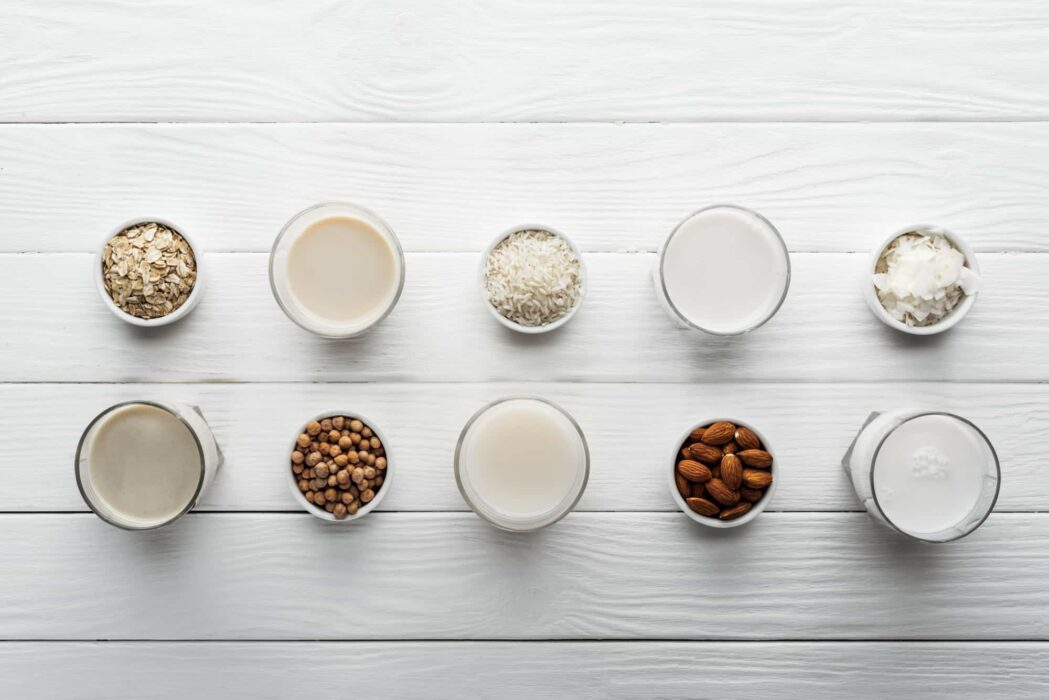
Is Milk Keto?
So, different types of milk have different compositions and nutrients and different amounts of carbohydrates. Some are suitable for the keto diet, and some are best avoided. Let’s take a look at all the details of the different types of milk and decide which ones to choose for a low-carb diet. I want to point out right away that this information only applies to pure milk and does not apply to cheeses, yogurts, sour cream, or cream.
How Long Does It Take to Lose 50 Pounds on Keto?
Non-keto Milk to Avoid
Cow’s Milk
Cow’s milk is a valuable source of vitamins (A, D, B1, and B12) and minerals (phosphorus, magnesium, iodine). It is especially rich in calcium, which is beneficial for strengthening bones. This product contains immunoglobulins that help the body cope with colds and infectious diseases.
The amino acids found in milk positively affect the productive work of the nervous system and help fight insomnia. And some components of milk have a positive effect on the increased acidity of gastric juice and can be useful in some gastrointestinal tract diseases.
Is cow’s milk keto? 100 ml of cow’s milk contain:
- 52-63 calories
- 3-4 grams of protein
- 2-5 grams of fat
- 6-9 grams of carbohydrates
- 0 grams of fiber
- 6-9 grams of net carbs.
As you can see, it contains too many carbs for your ketosis, so it can be concluded that cow’s milk is not keto. Moreover, in some people, it provokes swelling and weight gain during a low-carb diet. It is the result of poor lactose tolerance.
First of all, cow’s milk should be excluded for people with intolerance to lactose – milk sugar. With this diagnosis of protein A1 intolerance, even a small serving of milk will lead to digestive problems. Milk is not recommended for allergy sufferers: its use in people with allergies can lead to the development of bronchial asthma.
Goat’s Milk
Goat milk contains about 40 useful elements necessary for the human body. The main elements are vitamins A, B1, B2, B6, B12, C, amino acids, various enzymes, and trace elements. This milk is considered a healing food and is used to treat metabolic disorders, prevent colds and help to relieve cancer symptoms. Goat’s milk improves blood circulation, increases libido, and speeds up the process of organ regeneration.
It contains a lot of potassium, which is especially great in the activity of the cardiovascular system. Goat’s milk, like cow’s milk, does not contain much iron. However, iron from goat’s milk is absorbed much better (30%) than cow’s milk (10%).
Is goat’s milk keto? 100 ml of goat’s milk contain:
- 69-73 calories
- 3-4 grams of protein
- 4-6 grams of fat
- 5-7 grams of carbohydrates
- 0 grams of fiber
- 5-7 grams of net carbs.
As you can see, although goat’s milk is lower in carbohydrates than cow’s milk, it is still not suitable for your keto diet. One cup of this milk (240 ml) contains your daily carbohydrate intake. Although goat’s milk is not keto, you can use a little in your coffee, as it won’t harm your ketosis. In addition, goat’s milk does not contain A1 protein, so it does not cause any of the above reactions that cow’s milk has.
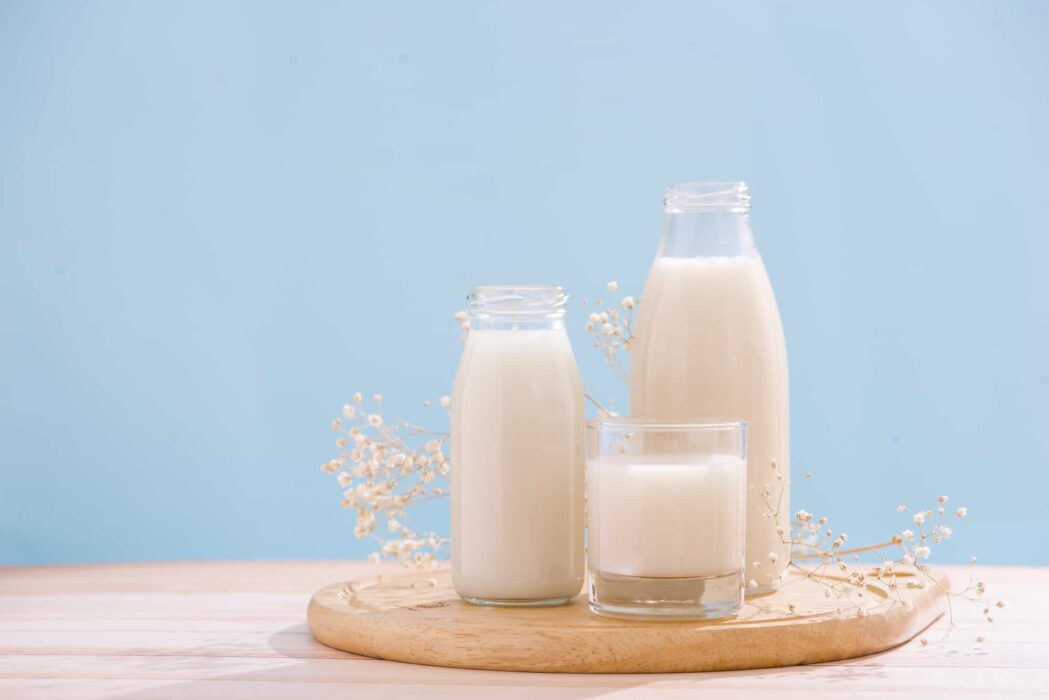
Soy Milk
Soy milk saturates the human body with protein and contains eight essential amino acids. These bioactive elements regulate metabolic processes, support brain activity and the immune system, and are the main materials involved in constructing enzymes.
Is Mayo Keto? 7 Tips and Tasty Low-Carb Recipes
The high content of folic acid, micro and macroelements, vitamins of group B, PP, and E, makes the drink especially valuable for maintaining all body systems. All of these substances are involved in the production of hormones and tissue regeneration at the cellular level. As a result, the regular use of soy milk has a beneficial effect on the state of the whole body, giving you youth and health.
Is soy milk keto? 100 ml of soy milk contain:
- 52-57 calories
- 4-5 grams of protein
- 2 grams of fat
- 5-6 grams of carbohydrates
- 1 gram of fiber
- 4-5 grams of net carbs.
Even though the amount of carbohydrates in it is not so high, soy milk is not keto. These carbs are made up of starch, glucose, pectin, sucrose, and fructose, which are dangerous for your ketosis.
However, be careful. The ability of erythrocytes to stick together increases with excessive consumption of soy drinks. It worsens the quality of blood, slows down the transport of oxygen to the cells. Excess soy milk consumption can reduce the absorption of certain micronutrients due to the high phytic acid content, slow down protein absorption, and disrupt the functioning of the pancreas.
Rice Milk
Rice milk is comparable to cow’s milk in terms of the number of vitamins. It is rich in dietary fiber, and it is also saturated with iron, copper, magnesium, and B vitamins. If the label indicates that the product is rich in vitamins A, D, and calcium, the manufacturers have added it.
Carbs in Rice: 5 Reasons to Avoid Rice on Keto Diet
Rice milk is good for relieving muscle tension, and athletes enjoy drinking it after intense exercise. It also strengthens the nervous system, normalizes digestion, and helps fight inflammatory processes. The drink is absolutely safe for people with metabolic disorders and even diabetics since it does not contain gluten. In addition, the main benefit of rice milk is that this drink is rich in fiber, which can lower cholesterol levels in the human body while maintaining a constant blood sugar level.
Is rice milk keto? 100 ml of rice milk contain:
- 67 calories
- 1 gram of protein
- 1 gram of fat
- 12-14 grams of carbohydrates
- 2 grams of fiber
- 12-14 grams of net carbs.
Despite being high in healthy fiber, rice milk contains too many carbs, and a cup of this milk has more than your daily intake. Therefore, rice milk is not keto.
Despite the multiple health benefits of rice milk, it can also be dangerous. It contains high levels of arsenic, which is safe for adults but can harm children under 4.5 years of age.
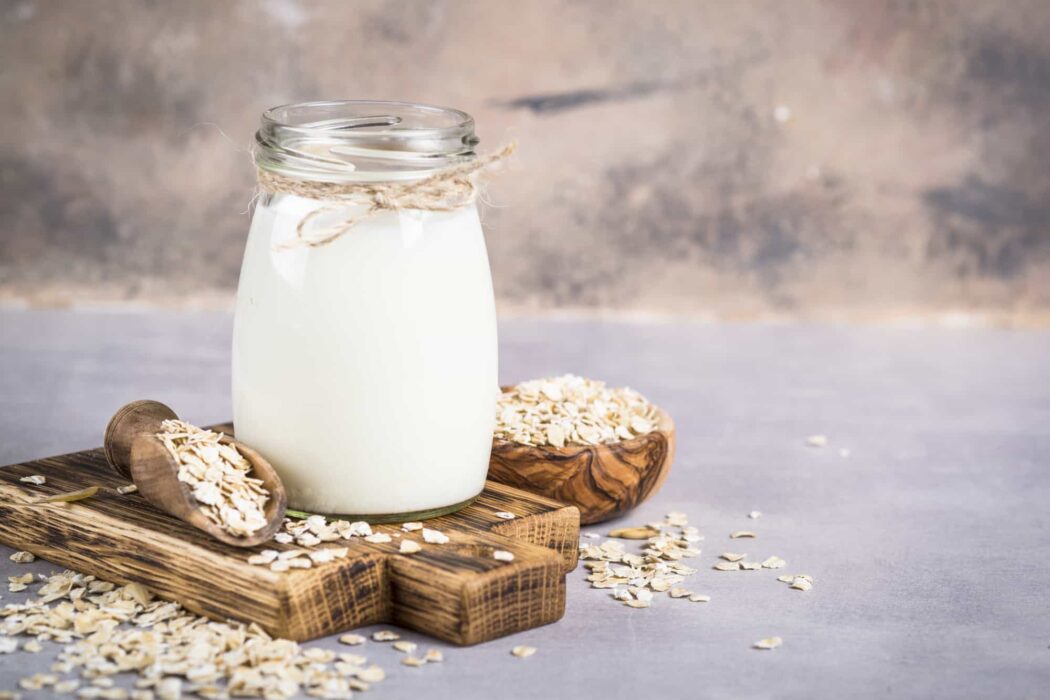
Oat Milk
This popular product is widely used by those who are lactose intolerant. The benefits of oat milk are that it is rich in calcium, magnesium, sodium, iron, manganese, copper, B vitamins, vitamins E and H. Besides, it helps to normalize blood sugar and accelerates metabolic processes, improves the digestive tract, and tones the whole body. Thanks to folic acid, vitamin B6, and fiber, this drink will be useful during pregnancy. It also has low-calorie content.
Is oat milk keto? So, 100 ml of this oat milk contain:
- 57 calories
- 1 gram of protein
- 2-3 grams of fat
- 7 grams of carbohydrates
- 1 gram of fiber
- 6 grams of net carbs.
Based on this information, one cup (240 ml) contains 14 grams of net carbs, which is a lot for keto. Besides, oatmeal has a high glycemic index and can increase your blood sugar. Therefore, it can be concluded that oat milk is not keto. And while a couple of tablespoons of this milk in your coffee won’t hurt you, I recommend avoiding oat milk entirely during your keto diet.
Dalgona Matcha Latte You Have to Try!
Oat milk, which may contain traces of gluten, should not be consumed by people with an intolerance to this substance. Those who suffer from kidney and intestinal diseases should also avoid it, and diabetics should consult a doctor before using it.
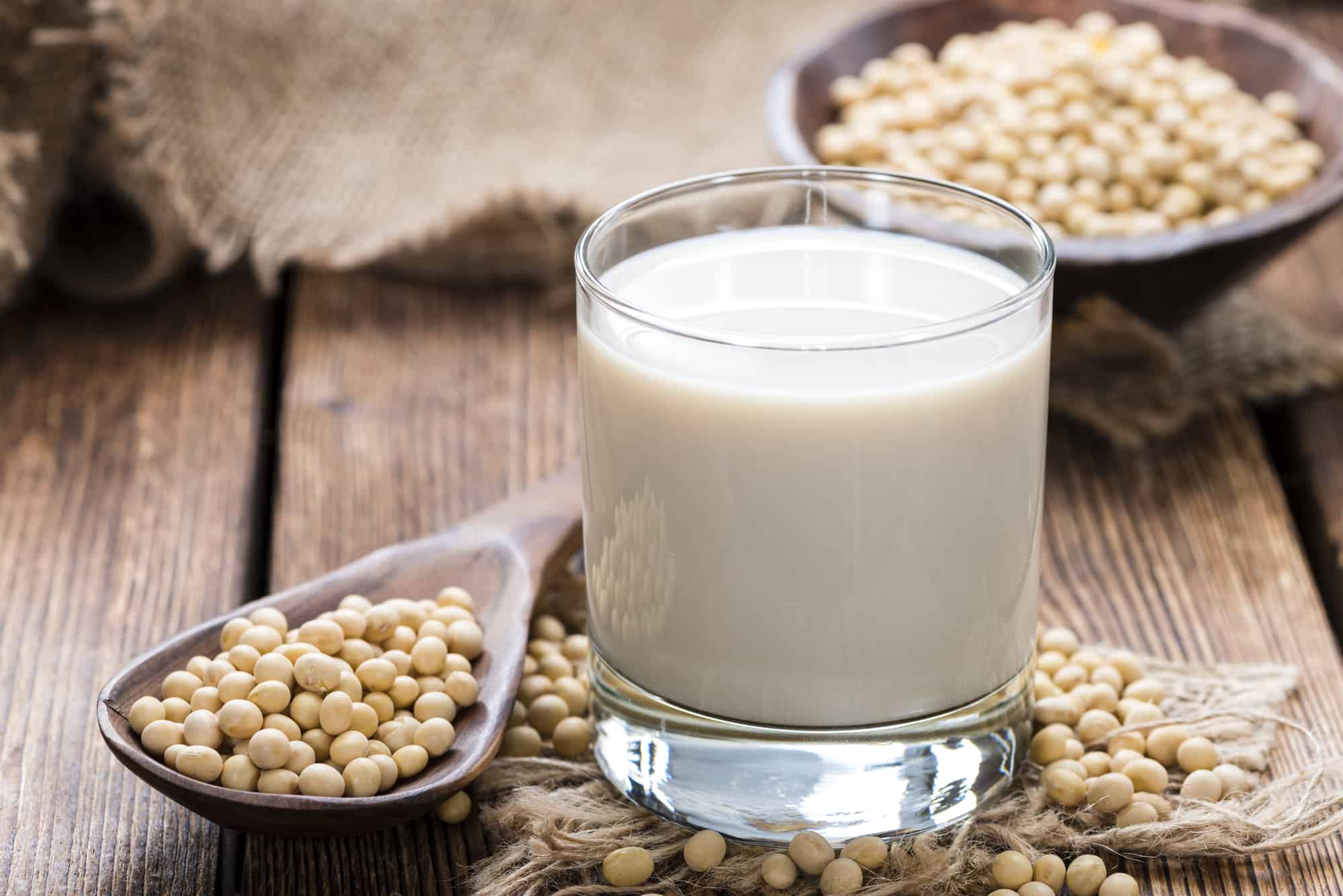
Keto Milk Alternatives
While most types of milk are not keto, I have great news for you. There are several low-carb options that you can use to diversify your diet. Let’s take a closer look at them.
Almond Milk
Almond milk is made from almond nuts, which are rich in vitamins, micro, and macronutrients. Thus, the potassium and magnesium found in almonds can improve the functioning of the gastrointestinal tract and help strengthen the blood vessels. Almonds are rich in protein and are an excellent alternative to animal proteins. And the fact that almond milk does not contain lactose makes it possible to use it for people with allergies or lactose intolerance.
Almond milk helps strengthen the immune system, aids in eliminating insomnia, restores strength after physical exertion and stress. It allows you to control your weight because it contains half the calories of cow’s milk and contains less sugar. Besides, it is a mild diuretic that positively affects the cardiovascular system since it does not contain cholesterol. Almond milk contains a lot of magnesium, potassium, vitamin E, phosphorus, iron, zinc, calcium, manganese, and B vitamins.
Is almond milk keto? 100 ml of almond milk contains:
- 17-23 calories
- 0.6-0.8 grams of protein
- 1-2 grams of fat
- 2-3 grams of carbohydrates
- 0.5-1 grams of fiber
- 2 grams of net carbs.
As you can see, almond milk is keto. As a result, it is a great ingredient for making delicious keto smoothies, desserts, cocktails, pastry, keto porridge, creams, and as an addition to bulletproof coffee. It has a plant origin, making it perfect for vegetarians on keto.
Almond milk tastes more delicate than cow’s milk and has a rich nutty flavor. You can buy it in the store, but making it at home is the best and most natural option. You can soak the almonds in water for a few hours and then simply mix them with the water in a blender.
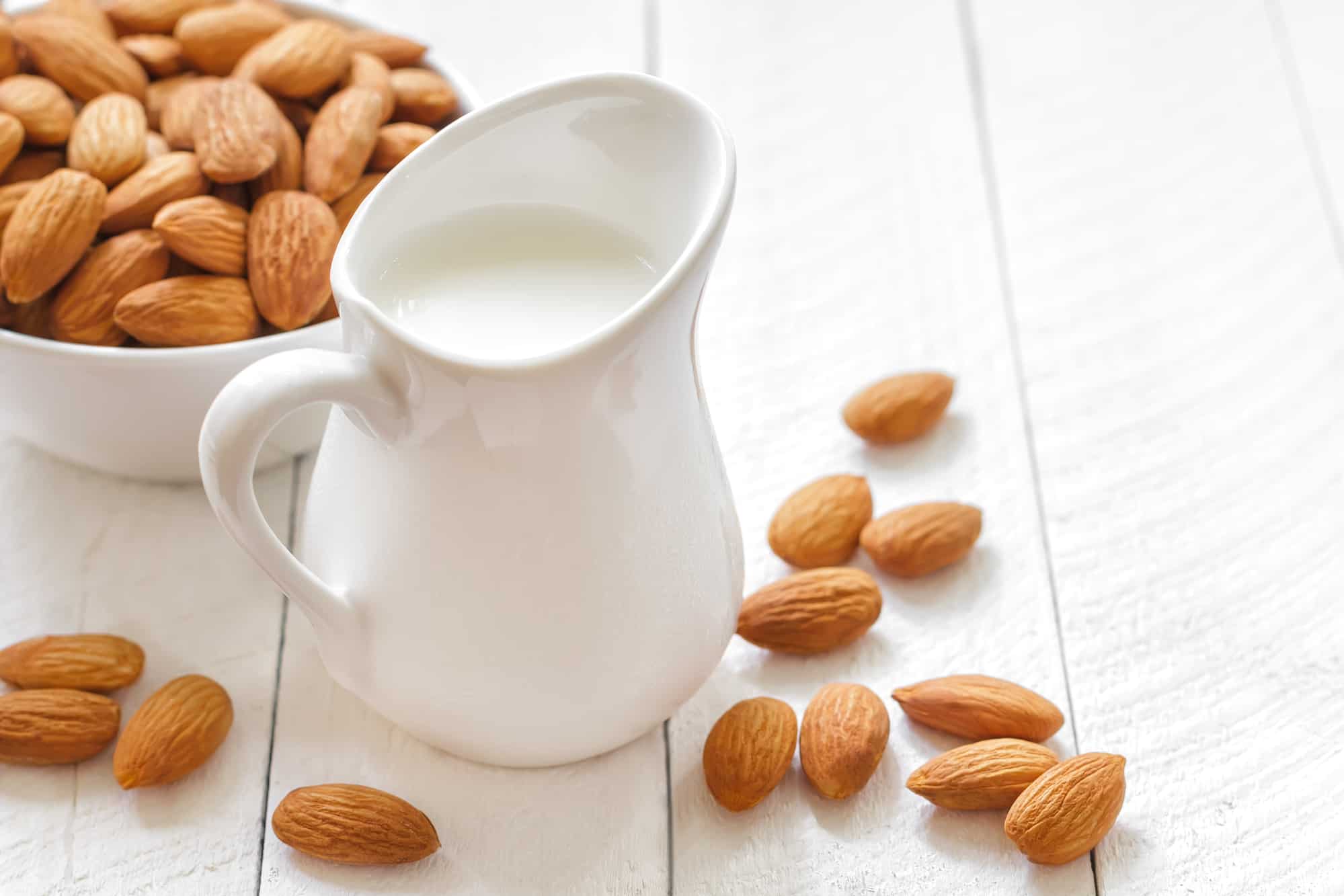
Coconut Milk
Coconut milk has beneficial properties which have been popular for a long time. It includes amino, mono, polyunsaturated, folic, omega, lauric, stearic, palmitic acids, vitamins, calcium, potassium, and phosphorus. It is also rich in magnesium, sodium, selenium, manganese, iron, copper, carbohydrates, fiber, and fructose, which gives it a pleasant sweet taste.
Coconut milk contains folic acid, which is required to support the immune system, and magnesium, which helps normalize blood pressure and has anti-stress properties. Thus, coconut milk helps the body cope with an unstable emotional state and reduces the impact of stressful situations on the nervous system.
Keto-Friendly Nuts: What to Eat and What to Avoid
Coconut milk is rich in phosphorus, which is very beneficial for bones as it helps develop and strengthen bone tissue. It also contains retinol, which is required for the skin’s health, and pantothenic acid, which helps to restore the body.
Is coconut milk keto? 100 ml of coconut milk contain:
- 23-25 calories
- 0.6 grams of protein
- 3-4 grams of fat
- 4-6 grams of carbohydrates
- 2-3 grams of fiber
- 2-3 grams of net carbs.
Coconut milk is keto. It is low in carbohydrates, high in nutrients, and is part of many keto recipes. Combined with coconut flour, this milk gives a magical taste to desserts. It is also often used as part of bulletproof coffee along with coconut oil.

Pistachio Milk
Pistachio milk is a drink made on the basis of ground pistachios, which have a creamy taste, delicate aroma, and a lot of useful properties. It is a part of the diet of athletes, vegetarians, and people who are lactose intolerant. The saturated chemical composition allows you to remove toxins from the body. Pistachio milk has a positive effect on the activity of internal organs, strengthens the immune system, and inhibits the aging process.
Pistachios have a high nutritional value – they contain more than 50 percent fats, proteins, and carbohydrates. Also, pistachios are rich in vitamins of group B, E, iron, copper, zinc, potassium, calcium, sodium, silicon, magnesium, selenium, phosphorus, choline, and other trace elements and minerals.
Pistachios are one of the main sources of vitamin B6, thanks to which they increase the body’s energy, promote healthy skin and eyes and accelerate metabolism. They also contain healthy monounsaturated and polyunsaturated fatty acids but are free of trans fats and cholesterol.
Is pistachio milk keto? 100 ml of pistachio milk contain:
- 38-45 calories
- 1 gram of protein
- 3 grams of fat
- 2-4 grams of carbohydrates
- 0.5 grams of fiber
- 2-3 grams of net carbs.
Yes, pistachio milk is keto. It is great for keto because it is whipped easier than other types of plant milk and has a dense, thick foam. Thus, it is suitable for a keto matcha latte, keto mug brownies, and delicate keto mousses.
Hazelnut Milk
Hazelnut milk is a drink made from chopped nuts and water. It is a nutritious, excellent thirst quencher. It also can be a part of the diet of athletes, children, vegetarians, and those with lactose intolerance. Hazelnut milk is well absorbed by the body, saturates it with micro and macroelements, affects hematopoiesis, and improves liver activity.
It contains many vitamins, cobalt, calcium, phosphorus, sodium, selenium, magnesium, chlorine, iron, fluorine, potassium, sulfur, iodine, and manganese. These compounds are responsible for blood formation, control muscle contraction, help cleanse the body of toxins, free radicals, and stimulate bile secretion.
Also, hazelnut milk has many amino acids that stabilize the synthesis and breakdown of proteins, reduce blood sugar, and stimulate brain activity. It is very helpful for chronic fatigue. It is also worth noting that among all nuts, hazelnuts are the most high-calorie. Just one glass can replenish energy after an exhausting workout or a hard day at work.
Is hazelnut milk keto? 100 ml of hazelnut milk contain:
- 29-38 calories
- 1 gram of protein
- 1 gram of fat
- 3 grams of carbohydrates
- 1 gram of fiber
- 2 grams of net carbs.
As you can see, due to its low-carb content, hazelnut milk is keto. It has a tender aroma and is a great option for different keto smoothies and keto ice cream.
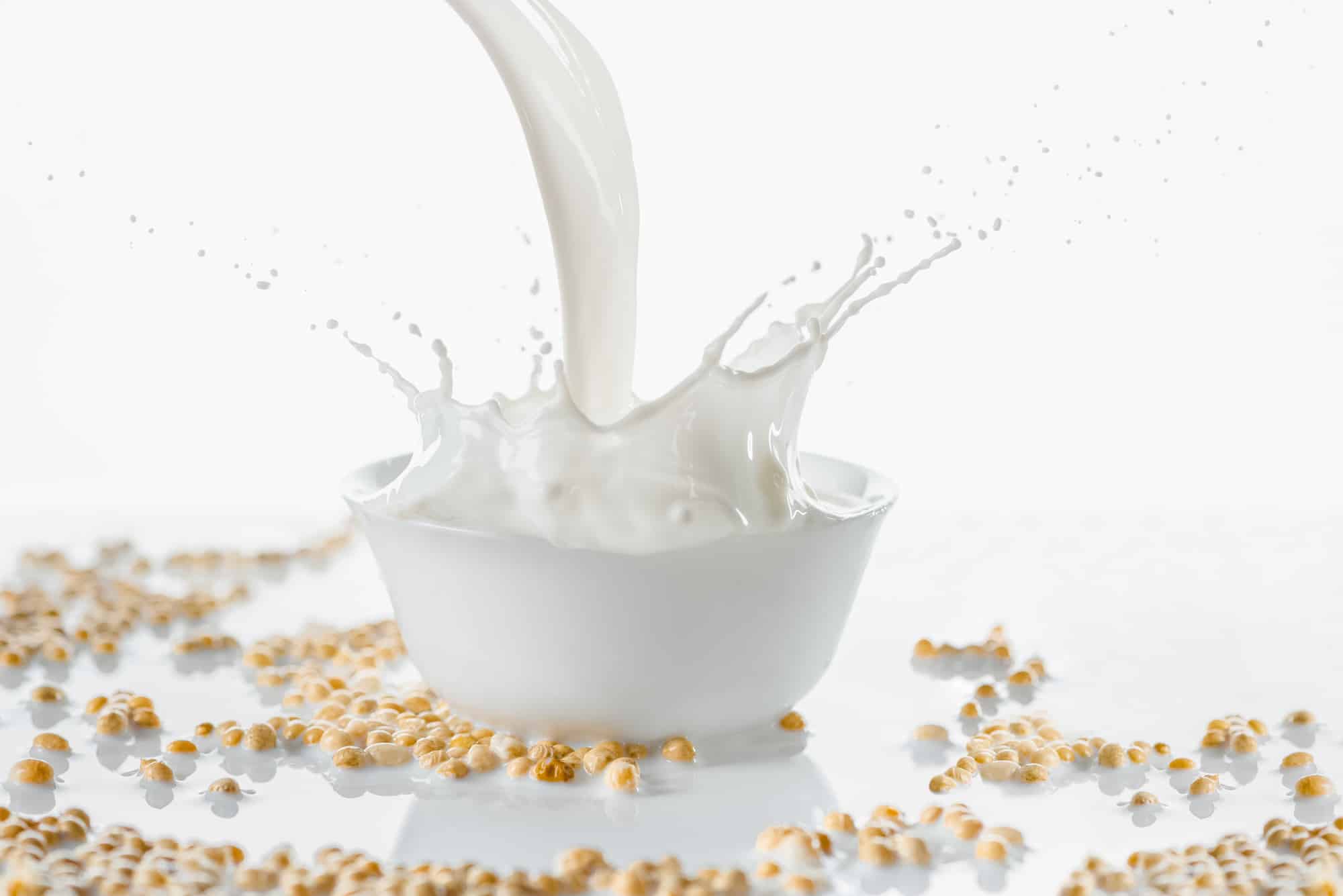
Hemp Milk
Hemp milk has a varied and rich multivitamin complex. It has a large amount of iron, magnesium, zinc, potassium, calcium, phosphorus, water-soluble vitamin D, B vitamins, including riboflavin and folic acid. It also contains fat-soluble vitamins A and E, a complex of Omega-3 and Omega-6 polyunsaturated fatty acids in an easily digestible form (better than in refined fish oil).
Moreover, in terms of the benefits it brings, a glass of hemp milk is more nutritious than a glass of cow’s milk. Only two glasses of hemp milk a day will fill the daily requirement of an actively loaded organism (for example, athletes) in calcium, zinc, and iron.
How to Keep a Healthy Weight after Keto?
Hemp milk helps to reduce dizziness, cerebrovascular accident and sclerosis in the elderly, insomnia, panic attacks, and anxiety. It helps with osteoporosis, problems of the autonomic nervous system, high and low blood pressure, edema, problems with the skin, hair, nails, and heart failure.
Is hemp milk keto? 100 ml of hemp milk contain:
- 41-43 calories
- 2-3 grams of protein
- 2 grams of fat
- 2 grams of carbohydrates
- 1 gram of fiber
- 1 gram of net carbs.
Yes, hemp milk is keto. It has a soft, sweet aftertaste with slight bitterness and a subtle nutty aroma. I like to add hemp milk to coffee or just drink it as a snack with a handful of nuts.
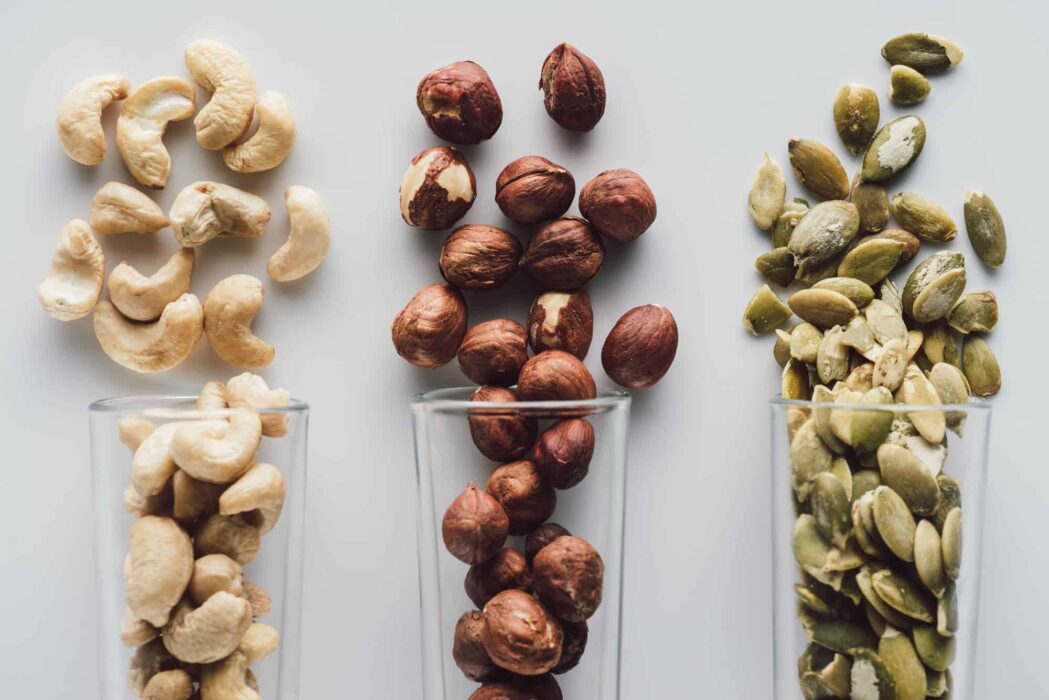
Conclusion
If you are looking for a keto substitute for cow’s milk, there are some low-carb, plant-based alternatives to choose from. The main thing is to read the labels, as some manufacturers add a lot of sugar, preservatives, and even flavor enhancers to create a pleasant taste.
You can make any kind of keto-friendly milk yourself. To do this, take a handful of keto nuts or seeds, soak them in water for a couple of hours and mix with water in a blender. By adjusting the number of nuts, you can change the taste – from bright, and rich to light and soft.
By the way, I have not mentioned several types of keto-friendly milk in this guide, such as sesame milk or walnut milk. Your imagination knows no bounds here because any keto-friendly seeds and nuts can be turned into milk with a small number of carbohydrates. I have just described to you the most popular options that you can either buy in the store or prepare yourself. Sometimes I even mix these options in a blender and get something wonderful. So feel free to experiment and keep your keto diet varied and healthy!